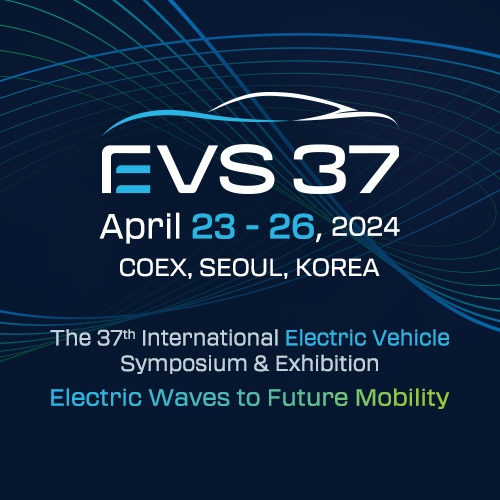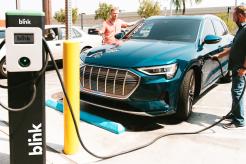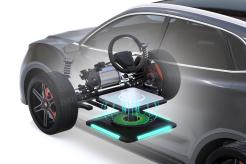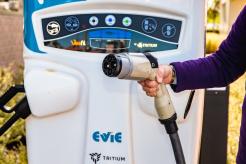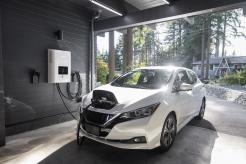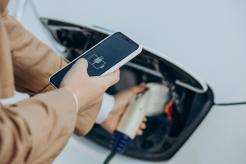Quantum charging technology can potentially create a virtual revolution in the EV charging universe. Let’s explore why — and you don’t need a PhD in physics to understand the concept.
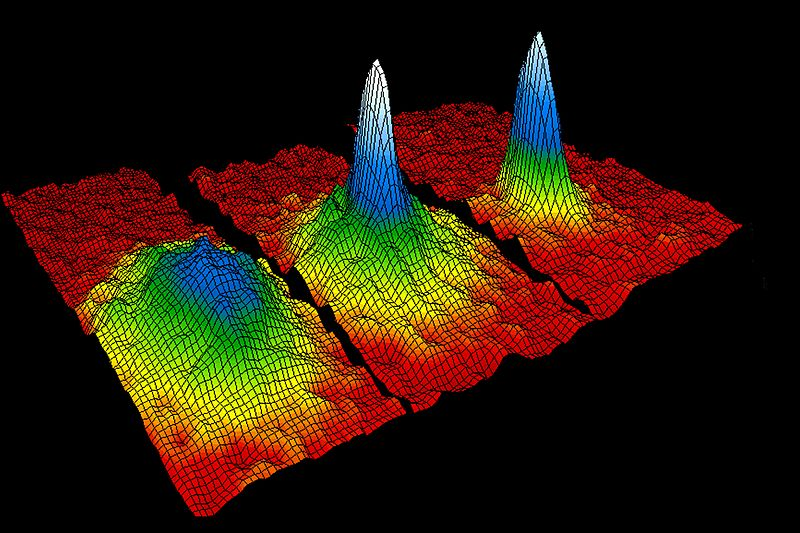
Image via Wikimedia Commons
1. What Is Quantum EV Charging?
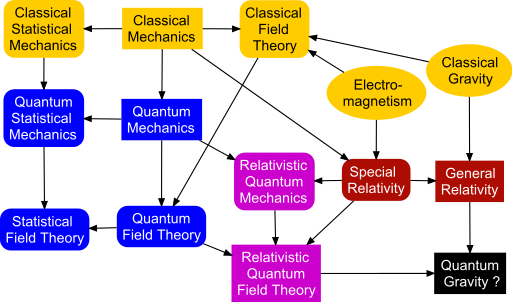
Image via Wikimedia Commons
In his paper “Sizing Up the Potential of Quantum Batteries,” Sourav Bhattacharjee explains what sets quantum EV charging apart from its standard counterparts. Standard (classical) EV batteries charge each cell in the battery independently of the others. Therefore, charging speed depends on the number of cells in the battery. The more cells an EV battery has, the longer it takes to charge.
Quantum EV charging works differently. Quantum batteries can charge multiple connected cells simultaneously, making it faster for drivers to charge their vehicles. This property allows charging to “scale quadratically,” where energy flow into the battery occurs at a scale equal to the number of batteries squared. The more cells in the battery, the faster the energy flows — exponentially.
It’s the connection between the batteries that gives rise to this speed. As a battery charges, its wave function overlaps with higher energy states. When the batteries are connected — scientists call this “entanglement” — the energy spreads faster among the cells in more than one direction since the photons act as waves rather than particles, a founding principle of quantum physics.
Of course, this technology is still in the concept stage. However, if it becomes a prototype, quantum charging could pave the way for greater acceptance of electric vehicles worldwide.
Faster charging would lead to happier drivers. Even now, researchers are working on translating the theory behind quantum mechanics to develop a real-world quantum battery for EVs.
2. How Fast Could an EV Charge with a Quantum Battery?
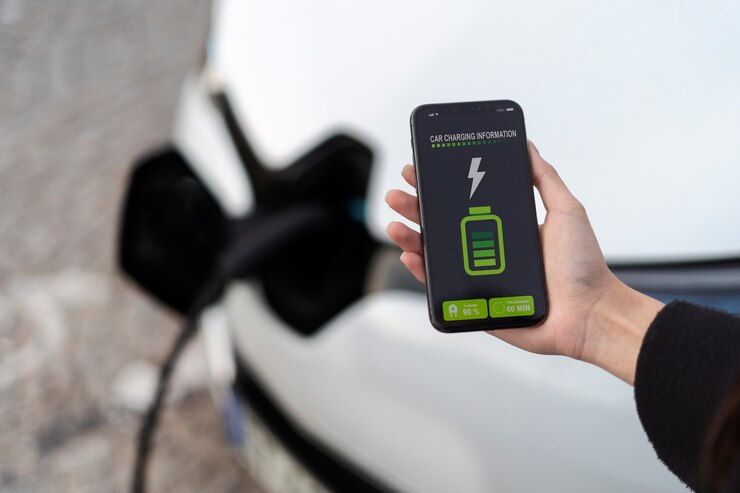
Image via Freepik
Several promising technologies, including Nio’s battery rental stations, could open the door for EV charging in nearly the time it takes to fuel up a gas- or diesel-powered vehicle. If quantum batteries exit the lab and enter the EV charging space, EV owners could charge their cars in exactly the same time as their gas-guzzling contemporaries — a mere three minutes, according to the Institute for Basic Science.
That could level the playing field for EV owners, who still need nearly 20 minutes to charge their cars, even at DC fast-charging stations. While that allows EV charging station owners to earn a bit more revenue by offering amenities, such as restaurants or entertainment, it doesn’t do much to win the hearts and minds of some non-EV drivers. To them, long stops are a hassle at best — a waste of valuable time at worst.
But there’s even more good news, the Institute for Basic Science article points out. With today’s larger batteries that contain hundreds of cells, a quantum version of those batteries could charge an EV in mere seconds at a fast-charging station. For the transportation industry, whose lifeblood is the speed of delivery, that ability could make electric semis the go-to choice for truckers.
3. Are Quantum Batteries On Track to Move into the Market?
Although leading-edge battery producer QuantumScape’s name indicates its ambitions go further than its current solid-state battery development, there are no indications that it is currently working on quantum charging technology.
However, the company has partnered with Volkswagen and other automakers on its solid-state battery and appears ready to plan its launch. EV enthusiasts can only hope that its “secret battery lab,” where engineers work 24/7 to “reimagin[e] every atom in the modern lithium-ion battery,” has put some of that reimagining to work to develop a quantum battery prototype.
That’s not to say that the company’s solid-state battery doesn’t represent a leap in the evolution of EV charging. It certainly does. However, with a car that could fuel up way faster than combustion engine-powered vehicles, EVs could become the vehicles of choice for drivers worldwide.
4. Are There Any Limits to Quantum EV Batteries’ Charging Speed?
A 2022 Physics paper determined that quadratic scaling — the square of the number of cells in an EV battery — is the limit for a quantum EV battery’s charging speed. So, increasing the number of cells could expand the actual rate at which a quantum battery charges.
However, the researchers determined that the mathematical scale at which the charging occurs will remain the squaring function. They found no indications that the scale could increase to larger exponents.
5. Could There Be Any Downsides to Quantum EV Charging?
In his paper cited earlier, Sourav Bhattacharjee noted that charging cells collectively could have some “detrimental side effects.” More variance in the total energy of the system (the “bare” Hamiltonian), he notes, could lead to “fluctuations in the battery energy output.” That, in turn, could damage any circuits the battery connects to. Engineers working on a quantum charging prototype need to solve that problem before such a battery is anywhere near ready for testing on an actual EV.
Secondly, other studies show that the connections between cells that quantum charging requires can limit the part of the battery’s stored energy that EV owners could use later. Unless scientists can find a solution to this challenge, that possibility could put a crimp on EV owners’ ability to leverage vehicle-to-grid (V2G) perks or use batteries that have outlived their usefulness to power their car’s motor to draw power from for home or another use.
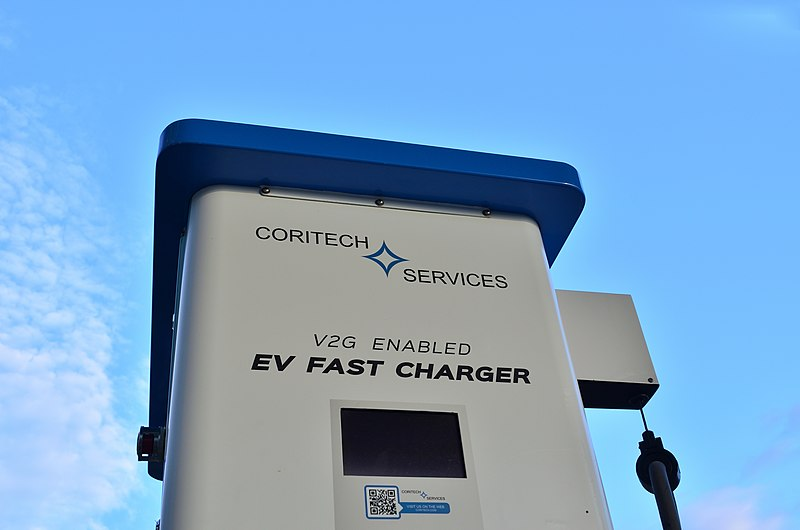
Image via Wikimedia Commons
Still, despite these roadblocks, the promise of quantum EV charging is so immense that it’s well worth the effort to pursue. If they can prevent circuit damage and retain more of the quantum batteries’ stored energy, they could represent a quantum leap in EV adoption.
Discover the Latest in EV Charging Developments at the EV Charging Summit & Expo
The more scientists and engineers working at a fever pitch to make EVs superior in every way to gas- or diesel-powered cars, the better the chance that the EV charging industry will leave the combustible fuel industry in the dust. You can have the opportunity to discover the latest developments in EV charging research when you attend the next EV Charging Summit & Expo. Register a spot for yourself and your team today!

